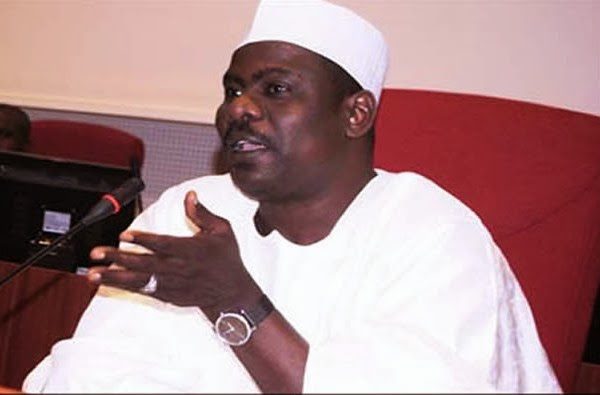Democracy & Governance
63rd Independence Celebration; Nigeria Is Too Big To Be Great (Part 2) -By Festus Tokunbo
but the government of President Jonathan lacked the political will to implement the recommendation of the national conference. I want to suggest that President Tinubu revisits some of the recommendations of the 2014 national conference and implement policies that decentralise the Nigerian democracy and empower the regional and state governments.

As l begin to write this article, Nigeria is celebrating its 63rd Independence anniversary, having obtained independence from the British government in 1960. Among the countries that obtained independence from the European Colonisers between 1960s and 70s, Nigeria was one of the richest in terms of human resources, mineral resources and ecological resources. Algeria obtained Independence from France in 1962. Singapore obtained independence from England in 1965 and Mauritius obtained independence from the British government in 1968. These countries were relatively poor at Independence, but are far more developed than Nigeria today in terms of Human Developed Index (HDI), Per-capital Income (PCI), Climate change Adaptation (CCV), Climate Change resilient ranking (CCR) and currency ranking (CR). Nigeria was about 35million population at Independence in 1960, which was one of the largest in the world. Oil was discovered in Bayelsa state in Nigeria in 1963. Nigeria is now Africa’s largest economy in GDP and the world’s most populous black nation. The country is the world’s 4th largest exporter of liquefied natural gas, the world’s 12th largest exporter of oil and the 17th largest exporter of natural gas. In spite of these huge minerals, humans and ecological resources, 65% of the Nigerian pollution, about 135 million people are multidimensional poor according the UNDP, University of Oxford and the Nigeria Bureau de Statistics in 2022. Nigeria is ranked as 164 out of 191 countries in the Human Developed Index (HDI), which is among the lowest in the world. Nigeria’s per capital income is ranked at 141 out of 191 countries, which is one of the lowest in the world. The Nigerian currency is among the 20 lowest currencies in Africa at over N900 to 1 US dollar.
Nigeria’s energy poverty at 145kWh per capital is among the highest in the world, despite the fact that the country has huge reserves of coal, uranium for nuclear energy and hot tropical forest for solar energy capabilities to achieve energy security. Nigeria is probably the only 100 million plus population in the world that is not a trillion dollar economy. Based on its huge human and mineral resources, Nigeria ought to be one of the 20th largest economies in the world, in both social and economic ranking, but the country remains a low-income and one of the countries with the highest numbers of poverty in the world as a result of weak political institutions, among other factors. A few of those factors are analysed in this article.
The 1999 Constitution was masterminded to under-developed Nigeria;
Nigeria may not unleash its mineral, human and ecological potentials to achieve economic dominance with the 1999 constitution. I won’t want to mention names in this article, but the 1999 was masterminded and structured to underdeveloped Nigeria. In mid-2022, I attended the Ambassadorial forum to discuss UK/Nigeria bilateral relations organised by the Nigerian Institute of International Affairs Lagos. The Deputy British Ambassador to Nigeria was the guest speaker. He delivered an impressive presentation about improving the bilateral relations between the UK and Nigeria. During the questions and answers session, l asked him a questions as follows; “Why did the British government introduce a centralised democracy in its former colonies that is different from what is being practiced in England and the UK, If Nigeria decentralised its democracy, will that improve its internal-insecurity”. In response, he said l have asked a very interesting and intelligent question.
In England and across the developed countries, what is being practiced is a decentralise democracy. For example, in Germany, there are about 16 regions (states) in the country. Each region is responsible for its own education policy, internal-security policy, emigration policy, economic policy, energy policy and trade policy. The main function of the central government in Berlin is foreign policy, defence policy and macroeconomic policy through collection of federal tax to fund government budget. In most low-income countries, the post-colonial arrangement was the introduction of centralised democracy and power is mostly domiciled in the less-educational and developed regions within those countries. That was the primary cause of the Rwanda genocide in 1994. The primary objective is to create weak political institutions and maintain the imperialism and exploitation of those countries. International relation is a battle of knowledge. The Nigerian 1999 constitution assumed the Governor of a state as the Chief Executive Officer and security officer of the state, but the governor is less involved in the security policy of the state because the internal security policy is a primary function of the Federal Police force under the regulations of the Federal government. This is the primary cause of the insecurity in Nigeria.
The 1999 constitution must be radically restructured if Nigeria must unleash its huge human and mineral resources towards economic greatness.
FROM COLONIALISM TO INSTITUTIONALISM; EXPLOITATION IS THE KEY PRACTICES
From colonialism that ended with the end of the Second World War in 1944 to the beginning of institutionalism with the formation of the UN, IMF and the World Bank in 1945, the key practices is exploitation. Global institutions such as the IMF and World Bank were formed to promote the dominant interests of a few countries at the expense of other countries in the international community. Nigeria is under-developed due to lack of political-independence and political –will. The country’s political institutions are too weak to thrive and promote policies that suite its realities that would have utilised its potential towards sustainable development.
The low-income countries are victims of imperial policies in international relations and Nigeria is one of those countries. The leading cause of poverty in the 21st country in the world is dollarization. The US portion of global trade is 8%, but the US dollar accounted for over 88% of global trade, global payment and services. This is the leading cause of monetary poverty in low-income countries. A multipolar world would need multiple currencies as a means of international trade to ensure sustainable global development. The Newly Industrialised governments are taken their economies off the US dollars by promoting de-dollarization policies to strengthen their local currencies and improve macroeconomic variables. Throughout the 8 years of President Buhari’s government, Nigeria didn’t make a former application to become a BRIC member. The Former Finance Minister began the China/Nigeria currency swap policy to de-dollarize the Nigerian economy, but the succeeding governments after Owealla failed to implement the policy. The Human Rights Lawyer, Femi Falana said in a recent interview that he was informed by the CBN sources that the IMF instructed the immediate CBN governor, My Emefele to stop the implementation of the currency swap with china. In the past 12 months, I have attended UN conferences in Europe as a member of a team from Nottingham Trent University UK and Jaume University Spain, where l was very critical on World Bank and IMF officials for promoting policies that under-developed low-income country. International relation is a battle of knowledge. Global institutions are means through which the former colonisers maintain global imperialism. The Newly-Industrialised countries are characterised with strong political institutions which ensure they can maintain a balanced relationship with the imperial institutions such as IMF and World Bank, and are able to promote policies that suite their realities and develop their economics. The sustainable development of the Nigerian economy depends on the ability of the government to manage its relationship with the imperial institutions of the 21st century, and that will depend on strong national institutions.
NIGERIA NEEDS A DECENTRALISE DEMOCRACY THROUGH POLITICAL REFORMS TO ACHIEVE ECONOMIC DOMINANT;
If you examine the Newly- Industrialised Countries; countries that have achieved transition from poverty to prosperity, from primary to secondary economies, from low-income to upper-middle income countries since the end of the second world war in 1945, what those governments have done differently was establishing political reforms to destabilise the post-colonial arrangement in those countries. The political reforms in those countries create strong institutions that enable them to maintain balance relationship in institutionalism to protect their national interest and achieve economic development. Countries like China, South Korea, Singapore, Indonesia, Turkey, South Africa, Tunisia, Malaysia, and India were once victims of colonialism and institutionalism; but these countries are now fully independent and have strong institutions to promote national policies that stimulate economic to growth and development in the midst of the imperial policies of the institutionalism. The Nigerian Federal government must be decentralised to achieve economic dominance. The country may never improve its internal-insecurity without decentralising its security architecture by establishing state and community policing.
The Electricity Bill 2023 introduced by President Tinubu in June 2023, meant to decentralise the energy sector was a smart economic reform policy. The centralisation of the energy sector has hindered the country from achieving energy security since its independence in 1960, despite having huge reserves of coal, hydro and other fossil fuel resources. The President should also introduce decentralisation policies in other key sectors of the Nigerian economy, like security, education, trade and mineral resources. The 2014 National Conference (Confab) was an ambitious effort towards a political reform that would have decentralised the political system, empower the regional and state governments and lead to the effective utilization of the country’s huge mineral, humans and ecological resources towards an economic dominance of the 21st century, but the government of President Jonathan lacked the political will to implement the recommendation of the national conference. I want to suggest that President Tinubu revisits some of the recommendations of the 2014 national conference and implement policies that decentralise the Nigerian democracy and empower the regional and state governments.




















